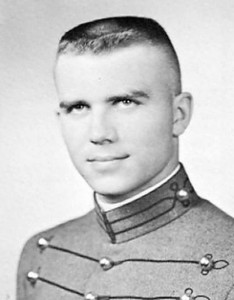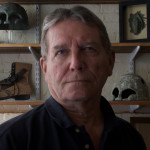“Except for his earliest work, the art of Ken Hruby cannot be analyzed solely in formal terms. Its in-your-face political message obliterates other considerations. Make no mistake, his messags is a valid one, deeply felt and generated by his own life. … The message is about war, its costs and its ironies.” – Marty Carlock, Sculpture, April 2002.
“His art grows out of his experiences as an infantry officer in Korea and Vietnam — and out of pondering the relationship between soldier and society. Most Vietnam art is angry venting: Hruby’s is full of ambiguity, irony, even wit, and that opens it up to all of us who didn’t go to war… Hruby makes poetry, not propaganda. His new poem is an epic. But like most of his work, it is marked by an elegant economy…” – Christine Temin, Boston Globe, November 2, 1997.
“Now that his memories of Vietnam are older than he was when he served there, he can relate to both the gray of the crutches and the youthful spirit piercing that monochrome exterior. In middle age, Hruby has become more than a “Vietnam artist.” He is a poet of the human condition.” – Joanne Silver, Boston Herald, November 14, 1997.
“To create a work of art that consciously addresses the personal and political impacts of war, or any large-scale political phenomenon, is to run the risk of heavy-handed moralism, self-absorbtion or unbearable self-conscious symbolism. … But thankfully, Ken Hruby, who has made a career as an artist by exploring the experiences of his career as soldier in Korea and Vietnam, has had the good sense to avoid the pitfalls of the typical political artist…Minefields of Memory,” Hruby’s 1997 work is about memory and minefields. But freed from its political context, “Minefields of Memory” becomes an exploration of the very tenuousness of our human existence. More importantly, perhaps, Hruby’s installation is complex, layered and conveys a meditative , beauty at odds with the nature of the inspiration. ” – James Hoff, Hampshire Gazette, March 21, 2002.

